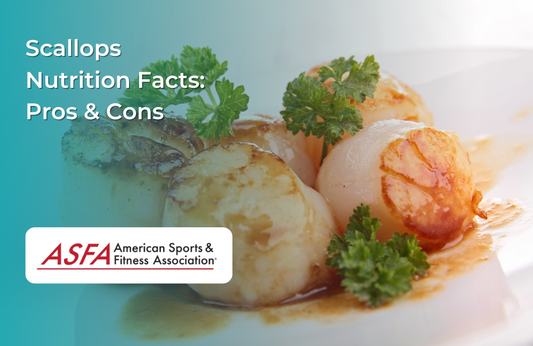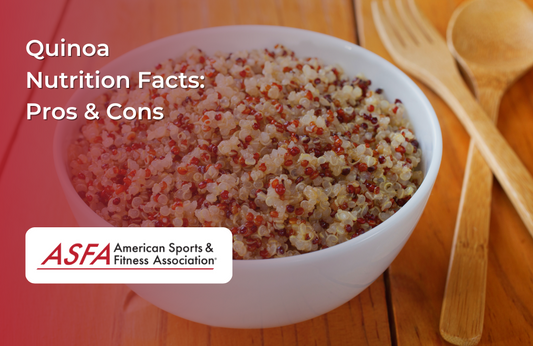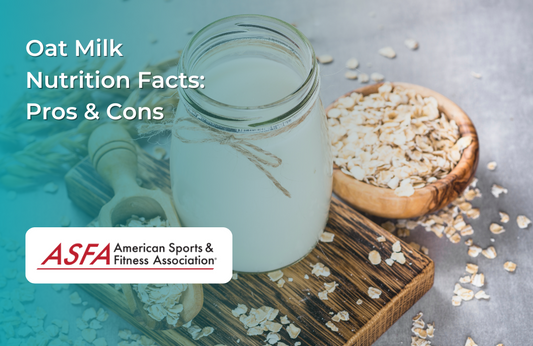Oat milk is a plant-based, dairy-free milk alternative made by blending oats with water and straining the liquid. It has gained popularity due to its creamy texture, mild taste, and nutritional benefits. While oat milk offers several advantages, it also has some drawbacks compared to other milk alternatives. Understanding its pros and cons helps in making informed dietary choices.
Oat Milk Nutrition Facts: Pros and Cons of Drinking It
What is Oat Milk?
Oat milk is a plant-based milk alternative made by blending oats with water and then straining out the solids. This process results in a creamy, nutritious beverage that is naturally free from dairy, nuts, and soy, making it an excellent option for those with common food allergies. Oat milk is particularly popular among individuals who are lactose intolerant or prefer a plant-based diet. Additionally, oat milk is environmentally friendly, requiring less water and land to produce compared to dairy milk, making it a sustainable choice for eco-conscious consumers.
Naturally Dairy-Free and Vegan
Oat milk is lactose-free, nut-free, and soy-free, making it a great choice for individuals with dairy allergies, lactose intolerance, or nut allergies. It is also a popular choice for those following a vegan diet. Additionally, oat milk is a great alternative for those looking to avoid the saturated fat found in cow's milk.
Rich in Fiber and Beta-Glucans
Unlike many plant-based milks, oat milk contains beta-glucans, a type of soluble fiber that helps:
-
Support heart health by lowering LDL (“bad”) cholesterol.
-
Improve digestion by promoting gut-friendly bacteria.
-
Stabilize blood sugar levels by slowing glucose absorption.
Oat milk consumption can help stabilize blood sugar levels and promote gut health, making it a beneficial addition to a balanced diet.
Fortified with Essential Vitamins and Minerals
Most commercial oat milks are fortified with important nutrients, including:
-
Calcium – Supports strong bones.
-
Vitamin D – Aids calcium absorption and immune function.
-
Vitamin B12 – Essential for brain function and red blood cell production.
-
Iron – Helps prevent fatigue and supports oxygen transport.
However, it's important to note that the nutrient composition of oat milk differs from that of cow milk. While oat milk is fortified with these vitamins and minerals, cow milk naturally contains a range of nutrients, including higher levels of protein and bioavailable nutrients, making it a whole food option compared to the processed nature of many plant-based milks.
Creamy Texture and Naturally Sweet Taste
Oat milk has a rich, creamy texture that makes it a great addition to coffee, smoothies, and baking. It also has a naturally sweet taste, reducing the need for added sweeteners. Homemade oat milk can offer a more natural taste and texture without the need for additives.
Supports Heart Health
The beta-glucans in oat milk have been linked to improved cholesterol levels and may help lower the risk of cardiovascular disease. When oat milk compared to cow's milk, it has lower saturated fat content, which further supports heart health.
Immune-Boosting and Anti-Inflammatory Benefits
One of the standout features of oat milk is its content of beta-glucan, a type of soluble fiber known for its immune system-supporting properties. Drinking oat milk can help boost your immune system, reducing the risk of illnesses. Moreover, oats contain a unique alkaloid compound with antioxidant and anti-inflammatory properties. These compounds can help lower cholesterol levels and reduce the risk of chronic diseases, making oat milk a beneficial addition to your diet.
Allergy-Friendly
For those with nut, dairy, or soy allergies, oat milk is a fantastic alternative. It is naturally free from these common allergens, making it a safe choice for many. Additionally, oats are naturally gluten-free, but it’s crucial to choose a certified gluten-free oat milk brand to ensure that the product is processed in a facility that does not handle gluten. This precaution helps avoid cross-contamination and ensures the safety of those with celiac disease or gluten sensitivity.
Comparison to Other Milks
Oat milk stands out from other plant-based milks due to its creamy texture and neutral flavor. When compared to almond milk, oat milk has a higher calorie and carbohydrate content but is lower in fat. Soy milk, on the other hand, boasts a higher protein content than oat milk but may have a stronger flavor that some people find less appealing. Rice milk is another popular plant-based milk alternative, but it tends to be higher in sugar and lower in nutrients compared to oat milk. Each type of milk has its unique benefits, but oat milk’s balanced nutritional profile and pleasant taste make it a versatile choice.
Skin and Hair Benefits
Drinking oat milk can offer several benefits for your skin and hair. The antioxidants and anti-inflammatory compounds present in oats can help reduce inflammation and improve skin health, potentially reducing the appearance of acne and other skin conditions. Additionally, the vitamins and minerals found in oat milk, such as vitamin B and iron, can promote healthy hair growth and reduce the risk of hair loss. Incorporating oat milk into your diet can contribute to a healthier, more radiant appearance.
Cons of Drinking Oat Milk
Higher in Carbohydrates and Sugar Than Other Plant-Based Milks
Oat milk contains more carbohydrates than almond or soy milk due to the natural starches in oats. Flavored and sweetened versions can be high in added sugars, which may lead to blood sugar spikes. Choosing unsweetened oat milk is the best option for reducing sugar intake. Making your own oat milk at home allows you to control the sugar content and avoid added sugars.
Lower in Protein Compared to Dairy and Soy Milk
While oat milk contains some protein, it has less protein than dairy, soy, or pea milk. This means it may not be the best choice for individuals looking to increase protein intake for muscle growth or satiety.
Potential for Added Oils and Preservatives
Some commercial oat milks contain added vegetable oils (such as rapeseed or canola oil) and emulsifiers to improve texture. These may add extra calories and fats that are unnecessary for some diets.
May Not Be Suitable for Gluten-Sensitive Individuals
Although oats are naturally gluten-free, some oat milks may be cross-contaminated with gluten during processing. Those with celiac disease or gluten sensitivity should choose certified gluten-free oat milk to avoid reactions.
Environmental Impact of Oat Farming
While oat milk has a lower environmental footprint than dairy milk, its production still requires large amounts of water and land compared to some other plant-based milks, such as almond or soy milk.
Conclusion
Oat milk is a creamy, nutritious, dairy-free milk alternative that provides fiber, essential vitamins, and heart-health benefits. However, it is higher in carbohydrates and lower in protein compared to other milk options. Choosing unsweetened, fortified oat milk ensures the most nutritional benefits while avoiding added sugars and unnecessary ingredients.
FAQs
Is oat milk healthier than dairy milk?
Oat milk is dairy-free and contains fiber, but dairy milk has more protein and natural nutrients. The best choice depends on individual dietary needs.
Can diabetics drink oat milk?
Oat milk has more carbohydrates than some plant-based milks, so unsweetened versions are best for blood sugar management.
Is oat milk good for weight loss?
Unsweetened oat milk can fit into a weight-loss diet, but watching portion sizes and sugar content is important due to its higher carb content.
Does oat milk contain protein?
Yes, but it has less protein than dairy or soy milk. If protein intake is a priority, consider pairing oat milk with protein-rich foods.
What is the best oat milk to buy?
Look for unsweetened, fortified oat milk with minimal added oils, sugars, or preservatives for the healthiest option.





